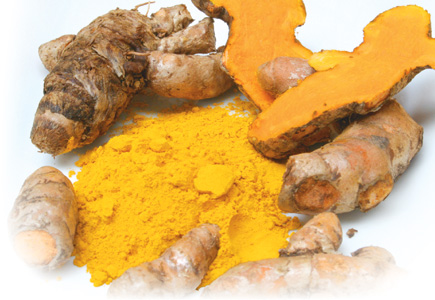Tumeric and Curcumin in Arthritis: Why Does My Regenexx Supplement Smell Like an Indian Restaurant?

As I’ve written before, there isn’t a day that goes by in our practice of treating arthritis patients that I don’t get asked which supplement patients should take for arthritis or which supplement would be best for their stem cells. As I looked at the U.S. national Library of Medicine for these answers, sometimes the data was robust and sometimes the tests performed on the various supplements wouldn’t allow me to answer those questions. Once we performed our own lab tests with various supplements, we found a handful that seemed to live up to the hype. Tumeric is a root that’s native to India that contains curcuminoids, a long list of compounds that includes curcumin. Curcumin has been used for centuries in traditional Chinese and Ayurvedic medicine for its anti-inflammatory properties. Turmeric has at least 53 different names in Sanskrit, each one referring to specific properties, including jawarantika, which destroys fever, mehagni, killer of fat, or rabhangavasa, which dissolve fat.
Is there evidence that these compounds might be helpful in arthritis? The following is a great review paper on tumeric and curcumin in arthritis (which I’ll summarize). First, the anti-inflammatory properties of curcumin have been known for centuries. Curcumin blocks inflammatory cytokines that are involved in joint destruction (IL1-beta, PGE2, NO, IL-6 and IL-8). In fact in one study it showed up NSAID drugs by also blocking the joint destructive compound known as NO (Nitric Oxide). It’s been tested in the lab with cartilage and tendon cells and shown to reduce inflammation in those specific cells. It’s also been shown to take the bad toxic stew that destroys arthritic joints and turn it around so that cells can move back to their normal state of pro-repair. This is very important, as few patients understand that these toxic chemicals that accumulate in their joints are as bad or worse as not having any cartilage, in that they further destroy the joint and lead to chronic swelling and pain. Curcumin also promotes mesenchymal stem cells to produce more cartilage.
Second curcumin can help troubled cells survive. Apoptosis is a funny word and a big deal in arthritis and general aging. The cells of the body tend to wear out more quickly under chronic stress or when we gain extra weight in middle age and beyond. So while the toxic chemical called IL-1-beta can accumulate in your joints as you age and lead to cell death (apoptosis), curcumin can block or reverse those effects. So curcumin also acts as a life preserver for cells that just don’t have enough “oomph” left to hang in there.
Has curcumin been shown to work in real arthritis patients? Yes, in one small blinded study on 42 arthritis patients, it was shown to decrease pain and increase mobility. Another study which looked at a special preparation of curcumin showed efficacy in 100 arthritis patients. These patients not only had less pain and better function, but also a reduction in inflammatory markers. Another small study has shown efficacy in rheumatoid arthritis patients.
So our Regenexx Supplement smells like an Indian restaurant for good reason, it’s the Tumeric and curcumin. If you mix it with some apple or other tart juice, it will taste like an Indian version of a spiced cider, yummy in the fall months. While some information was already available on tumeric and curcumin, our tests with real human mesenchymal stem cells in the lab impressed us enough to make sure that the Regenexx Supplement had that distinct zing found in a good curry!

NOTE: This blog post provides general information to help the reader better understand regenerative medicine, musculoskeletal health, and related subjects. All content provided in this blog, website, or any linked materials, including text, graphics, images, patient profiles, outcomes, and information, are not intended and should not be considered or used as a substitute for medical advice, diagnosis, or treatment. Please always consult with a professional and certified healthcare provider to discuss if a treatment is right for you.
